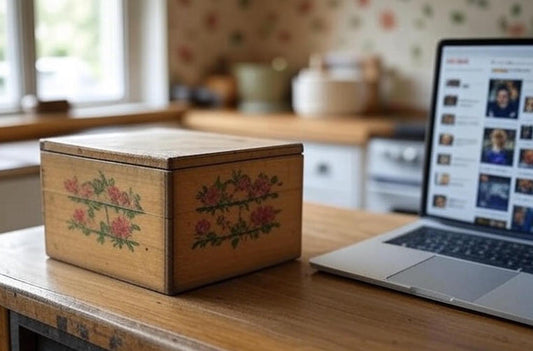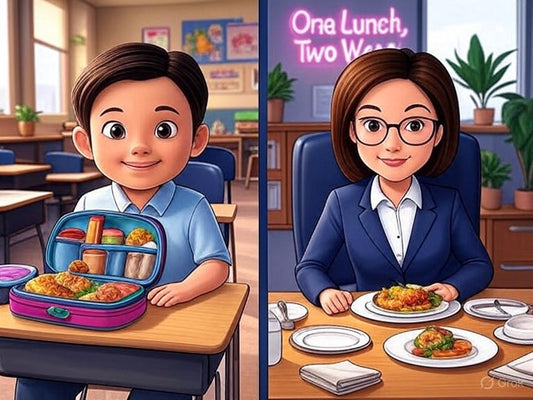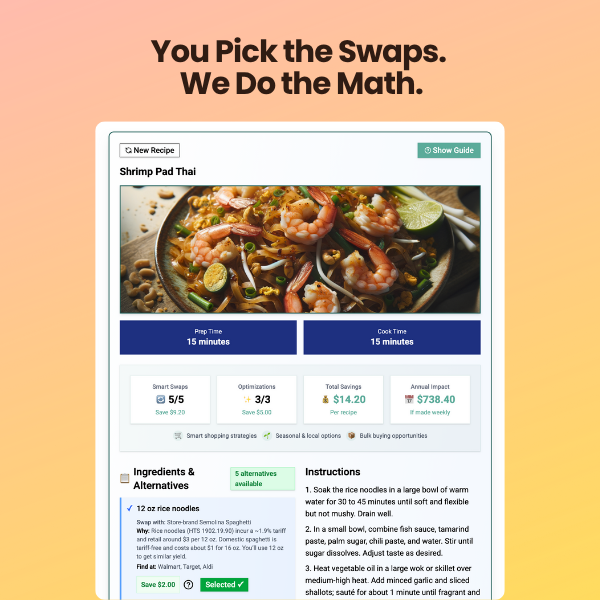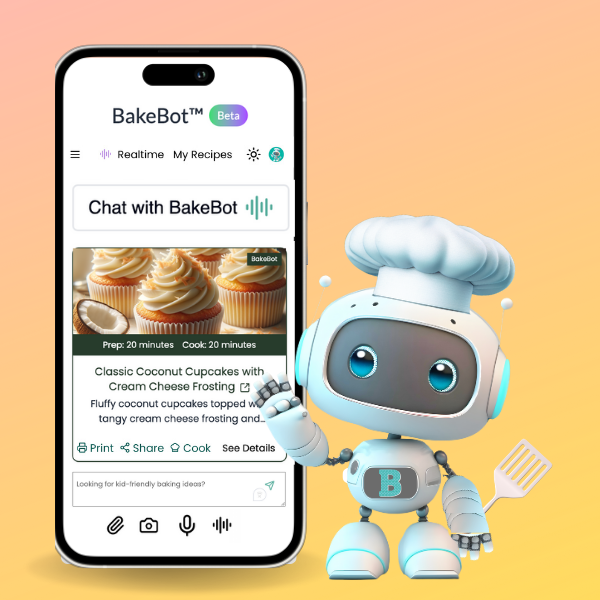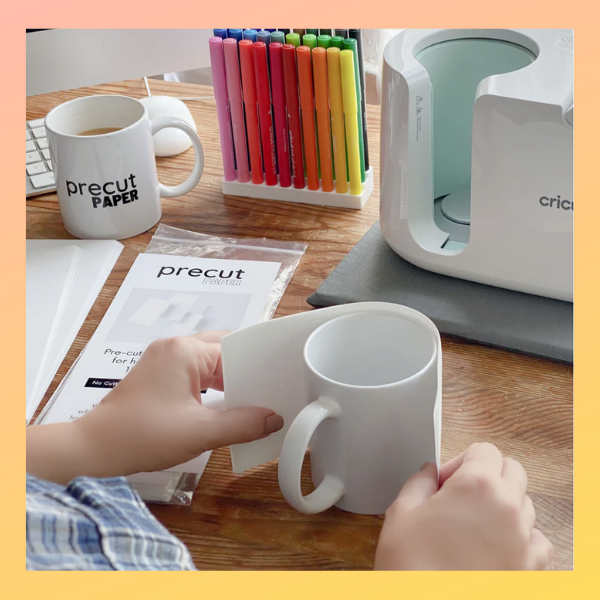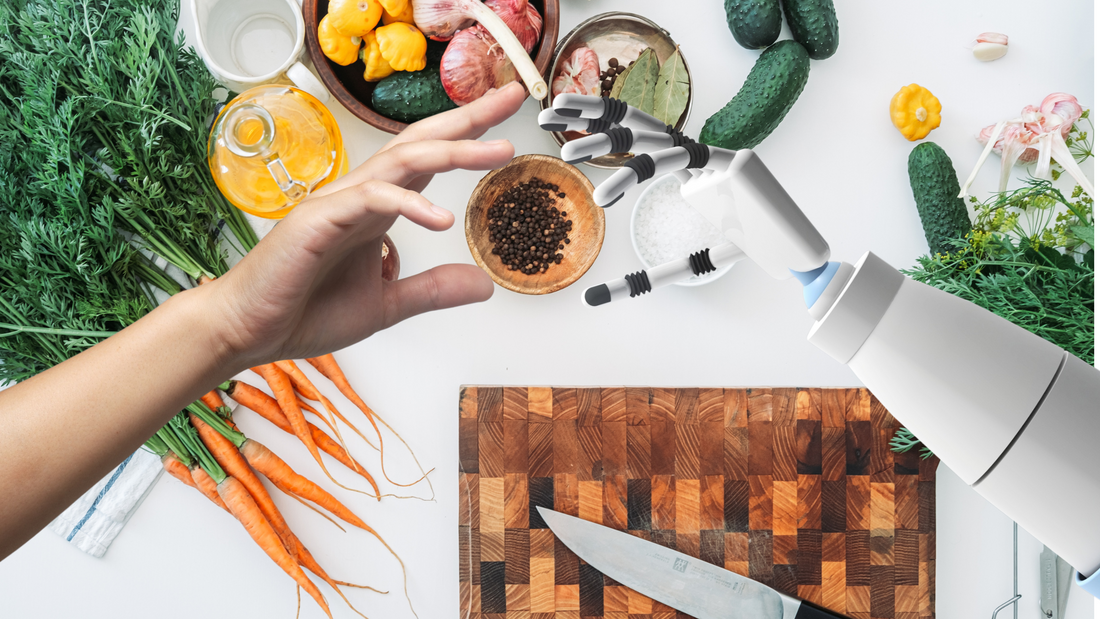
When the Internet Dreams of Robot Chefs: Lessons from Viral AI Kitchen Fantasies
Babette PepajBy Babette Pepaj, Founder of BakeBot.ai and BakeSpace.com
A funny thing happened this week: I started seeing articles about Elon Musk's "$7,000 Chefino robot" and "$5,000 Culina cooking assistant" all over social media. The stories were compelling with detailed descriptions of robotic arms precisely seasoning steaks, AI that could plate dishes with artistic flair, and automation that promised to revolutionize home cooking.
There was just one problem: none of it was real.
As someone who's spent years building actual AI tools for the kitchen, I found myself both amused and fascinated by these viral fake stories. But rather than just rolling my eyes at internet misinformation, I realized something important: these fabricated articles reveal something profound about our collective hunger for AI innovation in the kitchen.
The Internet's Kitchen Dreams
The fact that stories about Tesla cooking robots go viral tells us something remarkable about where we are culturally. People want to believe that AI can transform their relationship with food. They're hungry for innovation that makes cooking more accessible, more precise, more creative.
The fictional Chefino and Culina captured imaginations because they represented the promise many of us are working toward: technology that doesn't just help us cook, but elevates the entire experience. Even when people shared these stories skeptically or with eye-rolling commentary, they were engaging with the fundamental question: how should AI enter our kitchens?
What the Fake Stories Got Right
Interestingly, these viral fabrications actually captured some real trends in kitchen AI development. The descriptions of precision cooking, AI-driven recipe adaptation, and automated plating aren't pure fantasy - they're extrapolations of technologies that already exist or are actively being developed.
When I read about the fictional robot's ability to "adjust flavors according to user preferences" or "learn new cooking techniques via AI updates," I recognized echoes of what we're building with BakeBot. The difference is that we're approaching it through intelligent software rather than expensive robotic hardware.
The Real Revolution is Already Here
While people were sharing articles about imaginary $7,000 cooking robots, the actual AI kitchen revolution has been quietly unfolding in much more accessible ways. AI cooking assistants are already helping millions of people plan meals, substitute ingredients, troubleshoot recipes, and connect with cooking communities like our BakeSpace.com.
The real innovation isn't in building expensive robots that cook for you, it's in creating AI that makes you a better cook yourself. It's in platforms that connect you with other home cooks. It's in tools that can analyze your dietary needs, suggest recipes based on what's in your fridge, and help you understand the science behind why certain techniques work.
Why We Believe the Hype (Even When It's Fake)
The virality of these false stories reveals something beautiful about human nature: we're optimistic about technology's potential to improve our daily lives. Even when people shared these articles with skepticism, they were engaging with questions that matter: Should robots cook for us? Can AI make us better in the kitchen? How do we preserve the human elements of cooking while embracing technological assistance?
These are the right questions to be asking, even if the stories that sparked them weren't real.
Learning from Internet Skepticism
What was equally revealing was how people responded to these fake stories. Many comments expressed concern about losing the human touch in cooking, about technology making us too dependent, about the cost putting innovation out of reach for most people.
This skepticism is valuable feedback for those of us actually building kitchen AI. It tells us that people want technology that enhances rather than replaces human creativity. They want tools that are accessible, not luxury items. They want to preserve the joy and connection that comes from cooking, not automate it away.
The Real Future of AI in the Kitchen
The internet's fascination with fictional cooking robots and simultaneous skepticism about them, points toward what the real future should look like. Not expensive hardware that does everything for you, but intelligent software that makes cooking more approachable, more creative, and more connected.
This means AI that can:
- Help you understand why your bread didn't rise instead of just making bread for you
- Connect you with other home cooks who've solved similar problems
- Suggest creative substitutions when you're missing ingredients
- Scale recipes perfectly for your dinner party
- Learn your preferences without requiring a $7,000 investment (BakeBot is free on both BakeBot.ai and BakeSpace.com/bakebot)
Room for Everyone at the Table
The beautiful thing about innovation in the kitchen (whether real or imagined) is that there's plenty of room for all of us. The internet's enthusiasm for fictional cooking robots shows there's genuine hunger for AI kitchen innovation. Whether you're building robotic arms that can perfectly julienne vegetables, developing AI that can generate recipes from a photo of your fridge contents, creating platforms that connect baking communities, or inventing something we haven't even imagined yet, we all have a seat at the table.
Some will eventually prefer the precision of automation (when it becomes real and affordable), others will choose the guidance of intelligent assistants, and many will want a combination of both. The diversity of approaches (both real and dreamed-up) only makes the future of cooking richer and more exciting.
The internet's willingness to believe in and share stories about AI cooking innovations, even fake ones, shows we're ready for this transformation. Our job as actual innovators is to build the real tools that fulfill these dreams, making them accessible, practical, and genuinely helpful for everyday cooks.
So to every startup working on food AI, to anyone dreaming up the next kitchen innovation, and yes, even to the content creators spinning tales about fictional robot chefs: keep cooking up those ideas. The internet is clearly hungry for them, and hungry people everywhere will be better fed when we turn these dreams into reality.
And hey Elon, if you want to build that robot chef... call me! :)
Babette Pepaj is the founder of BakeBot.ai and BakeSpace.com, platforms dedicated to making baking and cooking more accessible through AI assistance and community knowledge sharing.


